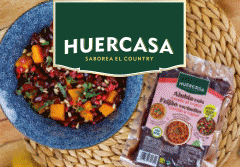According to figures released this week, UK authorities issued more than 328,000 export licences last year, with costs ranging from £113 to £200 per licence, depending on the product. This licensing requirement stems from the UK’s departure from the EU and has drawn heavy criticism from businesses, particularly small and medium-sized enterprises.
Labour’s Cabinet Office minister, Nick Thomas-Symonds, is set to announce plans to negotiate a new framework with the EU within the next 18 months, aiming to remove non-tariff trade barriers and reduce the cost of doing business across the Channel.
During an upcoming event hosted by Michael Gove, Thomas-Symonds will make the case for closer economic ties with the EU, arguing that eliminating red tape on food and agri-food trade is vital for British competitiveness. He will contrast Labour’s position with that of Reform UK’s Nigel Farage, accusing the latter of pursuing a backwards agenda that threatens jobs and raises consumer prices.
The announcement follows Prime Minister Keir Starmer’s commitment, made in May, to forge targeted agreements with the EU, including on food and agricultural trade. While Conservative leaders have criticized the move as a “Brexit backslide,” Labour maintains that the policy reflects national interests, not a return to free movement or the customs union.
RELATED NEWS: How much fruit and vegetables does the EU harvest?
Department for Environment, Food and Rural Affairs (DEFRA) also released a report this week highlighting the disproportionate burden that licensing and compliance costs place on smaller exporters, who often lack the resources of larger firms to handle administrative processes.
Major UK retailers like Marks & Spencer and Sainsbury’s have joined calls for reform, describing the current system as “unnecessary bureaucracy” that hampers trade and increases costs throughout the supply chain.


















